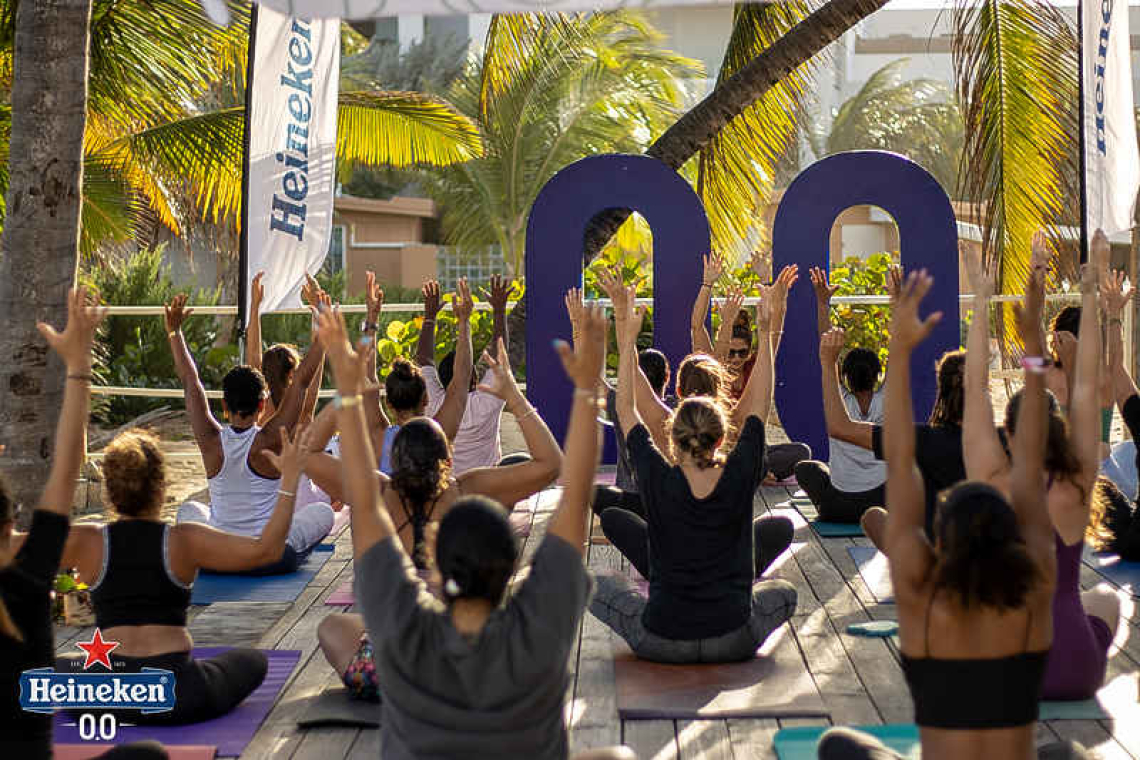By Dr. Colin Michie
“Your skin like dawn
Mine like dusk
One paints the beginning
of a certain end
The other, the end of a
sure beginning” ––Maya Angelou
The start of a year marks time as powerfully as our birthdays – a time to look at our beginnings and ends, opportunities for change, for resolutions, dreams. Might our lives be prolonged by improving our health in 2025?
Our lifespan is significantly influenced by our beginnings – our genes – but we cannot select our parents. The next strongest drivers are our lifestyles. Modifying negative habits of daily life, such as using tobacco or consuming excessive sugars, salt, calories or alcohol is vital. Similarly, not having enough physical activity, good sleep or good dental hygiene are all going to negatively affect our health. Tackling these are the first steps, and never easy ones. It may need planning, diaries, calendars, reminders. Healthy food and opportunities for physical activity are not always easy to find and there are so many distractions in the world around us! Staying focused, motivated and keeping up the energy to work on these personal lifestyle barriers will delay our certain ends.
One of the best predictors of healthy, long lives is physical strength and fitness. Can you stand up from a chair rapidly and smoothly, stand on one leg for a period of time, get off the floor or walk for several kilometres? These each require muscle strength, balance and aerobic performance. Regular home exercises may be sufficient to promote strength and fitness, which in turn supports independent living, social activities and sound mental health, and reduces accidental falls. Anyone who has suffered a fracture or required limb immobilisation for some reason will support these approaches. A cast or sling can limit one’s physical activities, changing daily life – it can be depressing! (It certainly reduces the numbers of muscle fibres in an immobilised limb). Regular Qigong, Tai-Chi or similar exercise systems improve muscle strength too.
Nutrition strongly influences the way we age, as well as the progress of age-related diseases. Specific nutrients can reduce the risk of retinal damage or hearing losses in older adults. In laboratory experiments with animals such as mice, restricting calories causes them to live longer and delays the onset of age-related disease. By looking at how different nutrients interact, it seems likely that low protein and high carbohydrate diets are more effective at extending model animal lifespans. We do not know if such diets work in humans – it would take a large, long-term study to analyse this. However, some caloric restrictions are likely to be beneficial to our health, at whatever age. Studies of a large group of individuals in the United States National Health and Nutrition Examination Survey suggest that high fibre diets that include plant proteins and omega-3 fatty acids are associated with less age-related disease.
Are there supplements, elixirs or traditional medicines that might extend your life? How about the flavonoids or anti-oxidants? It is unclear how much of these we need – is a vitamin C supplement necessary, for instance, or is eating mango and drinking regular bush teas sufficient to improve our antioxidants? Do we require extra flavonoids, or is a glass of sorrel, servings of callaloo or sprinklings of oregano sufficient to prime us, perhaps every week? No clinical studies have provided answers, but regularly taking two essential nutrients is something most of us do require – first, vitamin D (found in fatty fish, mushrooms and eggs); second, omega-3 fatty acids (found in fatty fish, flax or chia seeds).
Lithium is a non-essential nutrient that extends the lifespan of some experimental organisms. It is already prescribed in high doses for some patients with bipolar disorders, but supplements have not been reported to improve human lifespans. By contrast, the drug metformin, used to manage diabetes, reduces some effects of ageing, particularly on the heart. Studies of other molecules such as quercetin, minocycline and betaine may benefit longevity.
Five Blue Zones have been identified on our planet where there are large clusters of healthy centenarians. These folk all have physically active lives and positive interactions with their families and others around them. No particular genetic or dietary explanations account for their longevity. Blue Zone initiatives have been taken elsewhere, for instance in Iowa, with positive results for their populations. The World Health Organisation has developed checklists for building and developing age-friendly cities because of the great value, the social strengths that develop from promoting healthy lives.
We are all different, so your approaches to feeling good, to health and to longevity this year are personal and may not work for the family. Blue Zones remind us that working within wider communities could help others live longer too. There is much to plan for 2025!
Useful resource:
https://www.ageuk.org.uk/our-impact/politics-and-government/age-friendly-communities
Dr. Colin Michie specializes in paediatrics, nutrition, and immunology. Michie has worked in the UK, southern Africa and Gaza as a paediatrician and educator and was the associate Academic Dean for the American University of the Caribbean Medical School in Sint Maarten a few years ago.
Photo by Digital Island







